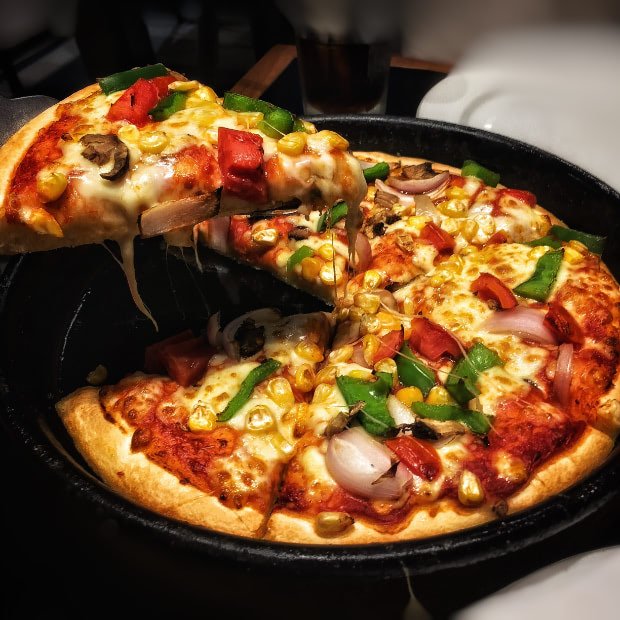“I saw this really great story about why you should really wash your spices and herbs,” I said, gesturing at the computer.
“Thank you, but that’s not why I’m here,” my mom said. She had driven two hours in early December to be with me while I recovered from a concussion and was now graciously allowing me to make her uncomfortable by forcing her to eat a vegetarian meal. “Tell me about your life.”
My mom is the best. But she doesn’t want to hear about how I washed my spice rack. And when there’s a choice between telling someone a good story and telling them something they want or need to know, it’s usually better to tell them the truth.
No matter how clean you keep your kitchen, the odds are that a lot of your spice rack is stale or otherwise ruined.
Spices are the perfect food to package in jars for long-term storage. They’re best when purchased whole and ground just before use, but freshly ground spices have a relatively short lifespan. Ground spices have limited flavor and color range, so they’re often adulterated with fillers and additives, take on the taste of their container, and lose potency over time.
Telling which spices have gone bad can be tricky; if you don’t know what you’re looking for, all dried herbs look alike. It’s not like the expiration date on your milk is going to help; it’s probably months old. And it’s not like you can tell from smell alone — dried herbs aren’t particularly aromatic to begin with.
Worse, spices marketed as “gourmet” or “exotic” are frequently just old and stale, because they aren’t sold in large enough quantities to be fresh off the boat or press.
How do you tell if your spices are fresh? I used to recommend sniffing them (and still do) but that only works if you’ve got an extremely well-trained olfacto-gust
Chili powder, curry powder, and the like are all blends of spices, but many of those spices have been sitting in warehouses for who knows how long.
That’s why it’s so important to buy whole spices and grind them yourself. If you’re not grinding them yourself, you’re going to be left with a lot of stale spices because the ones that taste okay have already been ground. Spices lose their flavor after about a year, and there’s not much you can do about it. Keep them away from light and moisture if possible.
If your spice rack has any dusty or musty smelling bottles on it, throw them out immediately. Those are old spices and they’ll just make everything else taste bad. You can see signs that your spices are going stale if they start to turn colors or change texture. Your paprika may go from bright red to orange over time, but that’s okay as long as there isn’t any visible mold growing on it (then again, you should probably toss it regardless). This happens to pepper too. And if you start noticing a wet or sticky feel on your spices, those are signs that they’ve been contaminated by moisture in some way.
There are two big reasons spices lose their kick. The first is that they’re exposed to air. As soon as a spice is ground, it begins to oxidize. This process speeds up even more when the spice is heated during cooking, and it doesn’t stop until the spice is completely consumed by your body or until it (and you) die.
The second reason spices lose their punch is because, for some reason, we don’t wash them off after we buy them. Spices sold at supermarkets and grocers are usually covered in a thin layer of protective coating. This allows them to stay fresh on the shelf for longer periods of time without clumping, but it also prevents us from knowing how old our spices are.
In many cases, that’s not a big deal. It’s difficult to know exactly how old your cumin was before you bought it, but unless it was under a year old when you bought it, its potency isn’t likely to be affected much by what happens next. But if you buy spices in bulk at an Indian grocer and then keep them in a cabinet at home for several years before using them, this will certainly have an effect on your recipes.
And when we say “affect,” we mean “make them taste like
Do you remember this picture?
It’s a scan of an old spice label. It’s so old, in fact, that it refers to the “U.S. Adulteration Laws of 1909.”
And the label is telling you (1) that your spices may have been made from bark scrapings and other industrial by-products, and (2) that you can’t sue the company for making them from those ingredients. Because of the Adulteration Laws.
Are there still such laws? I’m not a lawyer, but I sure don’t know any. But I do know that most of the spices in my cupboard are past their expiration date! What to do?
To avoid the papery taste of stale spices, keep them in a cool, dark area and replace them every six months.
Bulk spices, such as cinnamon sticks, whole nutmeg and ground ancho chili powder should be replaced every three months.
Spices lose their flavor as they age for a simple reason: They’re exposed to oxygen. When you buy a spice, it’s packaged with a small amount of carbon dioxide or nitrogen gas. When you open the package, some of that gas escapes—and so does some of the flavor. “The fresher the spice is when you buy it, the longer its shelf life will be,” explains Paul Babbitt, vice president of sales and marketing for McCormick & Company, which makes spices and other food additives.
Now comes the bad news: You can’t freeze your spices to preserve their freshness. Some people recommend storing them in airtight containers in the freezer to slow down the off-gassing process. That’s fine for whole spices such as cinnamon sticks and cloves; however, grinding those same spices (or any others) again after defrosting destroys their flavor.
To prolong their flavor, remove only what you need from the container at one time and replace the lid tightly. And remember
If you’ve ever opened a jar of dried spices, only to find that they smell like stale cigarette smoke, then you know how annoying it can be. It’s even worse when you’re cooking, because it can ruin a good recipe.
Trouble is, most spice companies don’t want to admit that their spices go bad. Instead, they put “best by” and “use by” dates on their jars, which are almost always way longer than they should be kept. After all, herbs and spices don’t really go bad — they just lose their flavor over time.
So how long do spices really last? And what about garlic? Can you freeze it? And what about oregano and thyme — do you store them the same way?
If you’ve ever wondered about this before, here’s the lowdown on keeping your spices fresh as long as possible and some tips for getting more flavor out of your dried herbs and spices.


